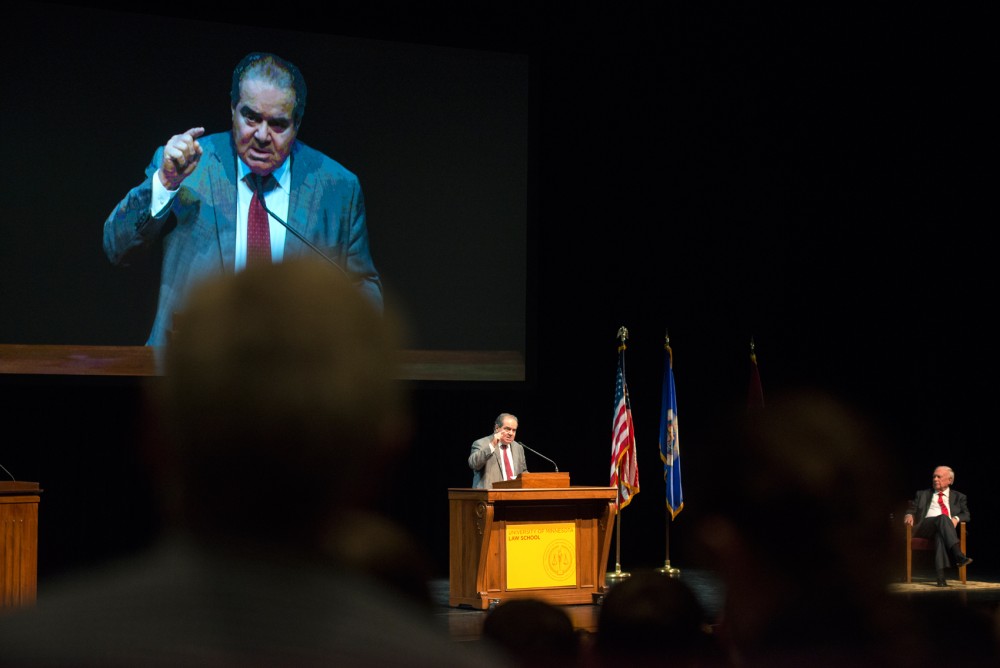Supreme Court Justice Antonin Scalia hit the podium repeatedly, staring down the audience and dropping pauses between statements as he discussed the death penalty during a lecture that drew a sold-out crowd of 2,700 to Northrop Auditorium.
Scalia came to the University of Minnesota on Tuesday afternoon to discuss his relatively rigid interpretation of the Constitution and how the Supreme Court has changed over his nearly 30 years as a justice — the longest stint of any serving on the high court.
“He’s actually a kind of fun speaker. We try to get a senior judge here every year. Last year it was Justice Ginsburg, who is quite a liberal judge,” said Fred Morrison, who has been a professor of law at the University since 1969. “This year it is Justice Scalia, who is quite a conservative judge. As it turns out, [Ginsburg and Scalia] are quite good friends,” he said.
Scalia addressed his relationship with Ginsburg in his lecture, pointing out how their views of the Constitution differ greatly. Law Professor Robert Stein asked him at the event whether his sharp views make it more difficult to round up votes from his colleagues.
“Do you really think my colleagues would mess up American law because they were peeved at me?” Scalia said during the talk.
Last year, Ginsburg spoke about women’s rights and contemporary cases, emphasizing that female law students should be sure to make their voices heard. Ginsburg was the second woman to serve on the nation’s highest court when she first took her seat in 1993.
Scalia emphasized his position as an originalist, which means he approaches the Constitution as though its meaning was fixed when the Founding Fathers wrote it.
“Today that is very much a minority view among judges, among professors,” Scalia said at the lecture. “Originalism used to be orthodox.”
While most of the public sees the Constitution as a flexible document, Scalia said he believes the Constitution should be interpreted as a rigid, legal document. If the more flexible view of the Constitution continues, Scalia said, it will be destructive.
“I used to say that my view is a dead Constitution. I had to dress that up a little. I will call mine an enduring Constitution,” he said during the lecture.
The lecture was part of a yearly series Professor Stein and his wife established to bring lawyers and judges to the University.
Before he was appointed to the Supreme Court, Scalia was the assistant attorney general for the Office of Legal Counsel in the U.S. Department of Justice. He then taught constitutional law at the University of Virginia and the University of Chicago.
In 1982, Scalia was appointed to the Court of Appeals for the District of Columbia and then appointed to the Supreme Court by President Ronald Reagan in 1986.
Vinita Banthia, a third-year law student at the University, said she thought Scalia was entertaining, adding that she enjoyed his lecture.
“It’s a good opportunity as a law student to hear from Supreme Court justices,” Banthia said.


